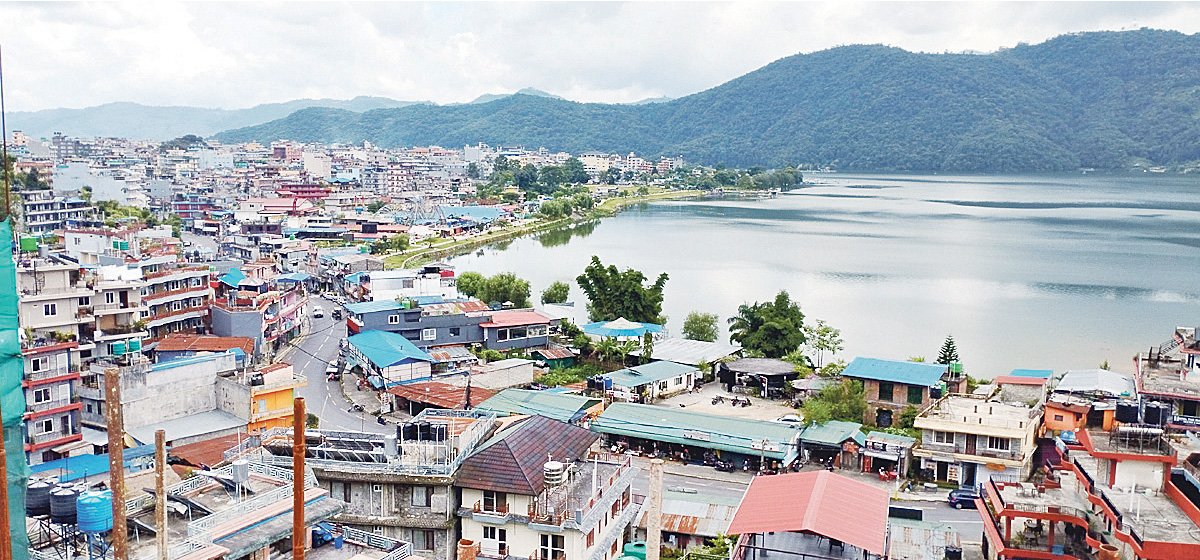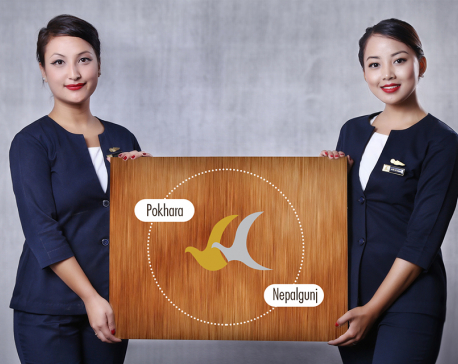
OR
Struggling to overcome pandemic and plane crash effects, Pokhara records unexpectedly low bookings in major tourist season
Published On: February 19, 2023 05:30 PM NPT By: Santosh Pokharel

POKHARA, Feb 19: The tourist season in Nepal is now underway, with February through April considered the second peak season in the tourism sector. Prior to the Covid-19 pandemic, the number of foreign visitors to Pokhara typically increased during this time. Tourism entrepreneurs regarded the period after February 15th as the main season, and were pleased when guests made advance bookings. However, this year, entrepreneurs are feeling disheartened due to low advance bookings for hotels.
Businessmen in the tourism industry are reportedly feeling discouraged due to lower-than-expected bookings at the start of this season. Basanta Gautam, owner of Temple Tree Resort, explains that the main tourism season typically begins on February 15th, gradually increasing and reaching its peak in the first week of March. However, the pace of tourist arrivals has been impacted by the Covid-19 pandemic, resulting in weaker numbers this year compared to previous years. Gautam notes that the pace of bookings this season is even slower than expected.
He reports that the advance bookings for hotels in Pokhara are currently less than 50 percent for this season, which is a very low number. "Normally by now, advance bookings should have risen to over 70 percent, but it's barely close to 50 percent," he stated. "It's not encouraging. The tourism sector has suffered significant losses and is still showing signs of struggling to recover."
Gautam says that the current occupancy rate of hotels in Pokhara is only 20 percent, which is considered very low for this time of year. "If advance bookings were at 70 percent and occupancy at 50 percent, then we would have felt some relief, but currently occupancy is at most 20 percent and advance bookings are below 50 percent," stated Gautam. "Entrepreneurs are not satisfied with the situation."
According to Gautam, the pace of advance bookings has been slower than it was before the Covid-19 pandemic. He explained that while entrepreneurs are hoping for a significant improvement in tourism during the next peak season (September-November) of 2023, he believes that the recovery time will likely be pushed back even further.
According to Bharat Parajuli, a central member of the hotel association, the advance bookings for the ongoing tourist season have been disappointing. Despite the season having already started, the level of advance bookings is not meeting expectations. "This is the time when we typically see an increase in tourists and bookings, but that has not been the case," commented Parajuli. "This period usually sees good bookings for March and April, but so far there are no indications of such visitors arriving.
He also said that the occupancy of hotels in Pokhara at this time is only about 20 percent. "At this time, if 50 percent occupancy would have been reached, we could have benefited from the season, but it has stopped at 20 percent to be able to cover the expenses," said Parajuli.
Laxman Subedi, the president of the Paschimanchal Hotel Association Pokhara (PHAP), has pointed out that there is a weak demand for advance bookings from tourists coming for trekking. "Due to the absence of Chinese guests, we are facing losses. Entrepreneurs would find relief if Chinese guests could visit, but they have not been permitted to enter Nepal after the Covid-19 pandemic," said Subedi. "Although it is the main season for trekking, the number of tourists has not increased, and this has disappointed entrepreneurs. If foreign guests do not arrive, even during the peak season, the tourism sector will lack enthusiasm," he added.
According to foreign tourism entrepreneurs, the business has suddenly slumped following the plane crash; a plane crash has had a bad impact on the tourism of any country. Due to the plane crash in Pokhara on January 15, the tourism sector has also been affected. Also, as the news of the aircraft accident has been covered in the international media, businessmen have been saying that it has affected the tourism sector.
Parajuli, a central member of the hotel association, was in Japan when the plane crash happened in Pokhara. After the news of the accident spread, the media in Japan started a lot of debate about the Pokhara plane crash. Expert pilots and technicians were invited to debate the possible cause of the crash in the media.
"The international community is not very interested in road accidents, but air accidents have become a topic of discussion in foreign countries," says Parajuli, "The issue of the accident in Pokhara became a topic of debate in the international media. It has spoiled the image of Pokhara. A question mark has been raised on the aviation sector of Nepal as a whole,” added Parajuli.
Gautam, the owner of Temple Tree Resort, also says that the arrival of foreign tourists dropped to zero in the first three weeks after the plane crash. For the first three weeks of the plane crash, there was zero guest arrival. Now it seems that it will increase, but the pace does not look encouraging," he said. "Domestic and Indian guests are also affected after the accident."
War, natural disasters and economic depression may be the cause
Tourism entrepreneurs have reported a decrease in the number of visitors from third countries. Guests are mostly opting for nearby destinations for their travel plans. Nepal's tourism industry is suffering due to the lack of interest in distant and expensive destinations, according to the analysis of entrepreneurs like Basanta Gautam.
"It is estimated that tourism activity has decreased due to ongoing conflicts in some countries, natural disasters, and the loss of jobs resulting from the Covid-19 pandemic," said Gautam. "Travel agencies have also noted that tourists prefer to travel to essential destinations that they must visit at least once in a lifetime. Otherwise, they are not willing to travel to expensive and far-off places."
Gautam believes that the high cost of air travel and long journeys are also deterring tourists from visiting Nepal. "The loss of income after the Covid-19 pandemic has had an impact. The global economic recession has caused prices to rise, and people are trying to save money on their tours," he added.
Similarly, Parajuli also speculates that the decrease in the number of tourists is due to the global economic downturn, wars, natural disasters, and inflation. These factors have weakened most economic activities, including the tourism sector.
You May Like This

Tourism entrepreneurs of Pokhara trade barbs with NTB officials
POKHARA, June 15: Tourism entrepreneurs of Pokhara have lodged a formal complaint against the officials of Nepal Tourism Board (NTB)'s... Read More...

Cautious optimism among tourism entrepreneurs as preparations are underway to start chartered flights from Pokhara airport to Chinese cities
POKHARA, May 19: The announcement to begin the chartered flights from Pokhara to different cities of China from June 23... Read More...

Buddha Air to begin direct flights Pokhara – Nepalgunj – Pokhara from April
KATHMANDU, Jan 14: Buddha Air will be expanding its direct flight services in the domestic network. It has already started... Read More...



Just In
- World Malaria Day: Foreign returnees more susceptible to the vector-borne disease
- MoEST seeks EC’s help in identifying teachers linked to political parties
- 70 community and national forests affected by fire in Parbat till Wednesday
- NEPSE loses 3.24 points, while daily turnover inclines to Rs 2.36 billion
- Pak Embassy awards scholarships to 180 Nepali students
- President Paudel approves mobilization of army personnel for by-elections security
- Bhajang and Ilam by-elections: 69 polling stations classified as ‘highly sensitive’
- Karnali CM Kandel secures vote of confidence















Leave A Comment